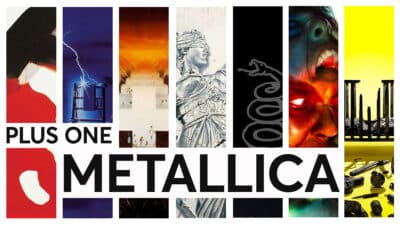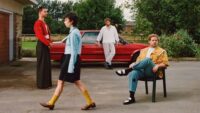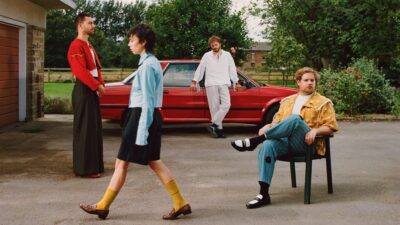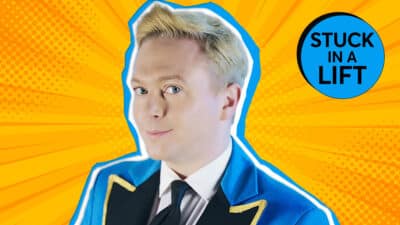New Music

Interview
Moonchild Sanelly: “Don’t change who you are. Shine”
The genre-busting storyteller discusses the journey behind her third LP Full Moon – and why you must never dilute yourself to fit in
There’s no containing Moonchild Sanelly. Effortlessly gliding between her childhood years steeped in gospel and kwaito, her displays of main-character energy alongside Diplo and Beyoncé and other career-defining moments on her bumpy road to global stardom, she’s as much the force of nature in our video chat as you’d expect from her slinky, fearlessly expressive, empowering jams.
After making a splash on the poetry scene in Durban, South Africa, the fashion-forward multihyphenate discovered that acting, dancing or any one music genre –be it jazz, hip-hop, homegrown qcom and amapiano or her self-conceived future ghetto funk– are not enough to accommodate a vision that is ever-shifting.
With her third album Full Moon slated for release in January 2025, she confesses that the experience was physical as she was looking for “the words to all the emotions and the darkness I went through in my journey to get here.” ‘Falling’ is an honest conversation with herself in the mirror after running away from home. ‘Mntanami’ is a letter of apology from her father, for whom she has now found understanding and forgiveness –while the ultra-bouncy ‘Big Booty’ is another testament to the star’s irrepressible, body-affirming hybrid of moods, languages and styles.
Here, we talk turning the idea of female victimhood on its head, owning your body and telling stories in a universal language.
You grew up in a musical family. What are your memories of that upbringing?
When it’s your family, it’s kind of normal. If I’m at my grandmother’s house I’m surrounded by my aunt, who’s leading the gospel group. Gospel music would play every Sunday, we were waking up to it before we got to church. Then on weekends, it was my cousins who were into kwaito music, which was more pop. Because they were dancers, I knew every song that came out that they loved. Then at my mother’s house, my brother had a recording studio and he did hip-hop and my mum played jazz, so it was just there. I remember one thing: I never really fit in. I discovered early on that I’m not one to be in a choir. I wanna be the star.
You’ve mentioned before that your mum wanted you to learn how to lead. Do you think that created a need to blaze your own trail?
She sees me walking behind a group of friends and I’m scolded more for that than I am
for coming home with the lights on in the streets. I never really got it but I feel that being a rebel with a cause came from that. I chose performance, I chose art as my expression. I was never in the streets or sneaked out. There were not a lot of things that I was super curious about because I was allowed to express [myself] in a way that also made me feel different amongst my peers. My mum would step in and say “you will not dilute yourself to fit in.”
I was allowed to colour my hair during the holidays while I was still in school. By the time I’m doing first year, I’m going all out. I was never curious about sex because my time was occupied with things that I was allowed to do, that people need to rebel against their families. You get into your hood and people aren’t exposed to what you’re exposed to. I was also exposed to things outside my city, so when I come back that’s one reminder:
Don’t change who you are, shine. If they can’t deal with it, it’s fine, but shine.
Body and sex positivity are also central to your work. Was it a journey to get to that point or did it come naturally to you?
I think it came naturally. One of the moments of realisation was in the poetry scene in Durban. This is the first time now coming out into the world. I remember all the women, when they talked about sexuality, they were not in power. They were victims of sexual violence, they were everything not strength. I come from women who just made things happen. So I just couldn’t relate.
For instance, I remember this one poem I wrote about me infecting the guy but he doesn’t know cause he’s mesmerised and it’s an actual trap. I realised years later that it’s still an HIV awareness poem, but I’m not the victim. I was rebelling against all the expected versions of poetry infection, rape and violation, just being a woman not in power, it was always sad, it was never about taking back strength.
Another moment of realisation was when my uncle sexually harassed me and I ran away from home at 19. I was like, “Do I kill him? If I kill him I’ll go to prison but I’m too cute for prison”. Then, I was like, “I’m gonna be so big, I’m gonna name and shame him”. I had to experience those things, so that when I tell the story it connects because it comes from an experienced point of view instead of an observant point of view.
Sex positivity is not just about being oblivious, it’s about your voice. Owning your body alleviates so many things and that helps empower someone to actually use their voice. For instance, there’s no parts of you that you’re trying to hide. Another part is when people make it feel like it’s a favour to love you because you don’t love yourself. There’s no relationship there because you can hear it for what it is.
You’ll never be exhausted being who you are, but you would be if you had to be doing what everyone else wants. So, rather be rejected for who you are, because you can be great as who you are. Sometimes it takes longer for people to digest something new, but Rome wasn’t built in a day.
What was the process of finding that global sound?
I moved from poetry, went into the hip-hop space. I wanted more, I went into the jazz space. Then I started being involved in so many different genres, as a backing singer, songwriter, whatever, in my hustle. In 2007, when I was recording my first project, I was like, “Everything feels safe man, I want something that makes you say, ‘that’s Moonchild.’”
So it started with a song called “Red Eye”. I’ve got these visuals, they were animated, I had the whole story down. Then I told the producer, “make music that makes me see these visuals”. I just wanted something that had my name, something that wasn’t safe, cause it felt like I’m not free. I wanted the liberation that came with the licence of being an artist. I didn’t want any influence, even subconsciously. It got understood by Just Music and got released in 2014. So, 80% of the music in that project is the stuff I started when I developed future ghetto funk, my sound in 2006-2009.
You are determined not to dilute that sound, even as you play global stages. And that’s on two levels: the music, and the language. You insist on mixing English with your native Xhosa, and South African styles likes amapiano.
Whatever genre comes from home I’m never beyond it, I will always have a hit. Because I feel I’m a storyteller, I’m not genre-bound. I’ve got a voice that was meant to be heard, whether it was gonna be through public speaking, acting or whatever. Τhe freedom to just express in every genre makes it so wholesome, when you make your own music without pinning it to directly this and directly that. Υou get to fit in everyone’s space and still create a world that everyone else fits in.
Ιn South Africa they’ll say, “You’ve got a white audience” and I’m like, “If anything, you should congratulate me for being a unicorn, where I liberate in a universal language that touches everyone.” Τhe colour, that is your story. Mine is to touch everyone that has been through the same things. If we’re gonna cry, we cry in the beginning of the song, we’re rejoicing and we’ve got strength in the end. We’re never gonna cry throughout the whole song. And that’s what I serve. Everything else is through your eyes, but my music is just for the heart.
How much has representation changed since you started out? Do you feel music has become more inclusive?
Oh, I’ve seen it. Even just the wardrobe for music videos, where with my girls we’d be the video hoes. They’d say no, we’re demeaning women. And I’m like, but the song that just played now is a man with video hoes. Why can’t we own that narrative? And the things that they would ban me from wearing on TV, there’s now so many more liberated people owning their bodies. Even the colourful hair and the braids. Everyone just wants to be different.
Even dance music in South Africa. It used to just be Black Coffee as the only South African that was known, to me being the alternative girl who was travelling but also bringing South African vibes. I feel like everyone’s watered the seeds that have been planted from your Miriam Makebas and your Letta Mbulus, the ones that made it outside of South Africa during apartheid. Now my biggest thing is, what is my excuse, if it was possible with apartheid? I’m that girl to make that change. I will learn on my own, I will do it my way. I’m not going to be famous for a genre, I will wait for the time for it to shine.
That’s how I learned to be self-sufficient. Βy the time I got the collaborations with your Beyoncés, your Diplos, I was still independent because of not being understood. Everyone had an idea of what they would like to do, but they just didn’t know how to do it. They didn’t know how to push what I already knew of myself. So now people are just watching everything happen.
Did you find it challenging standing your ground next to these big names?
Oh, honey, I shock everyone in the studio! My storytelling is so fast. There are so many pictures that come up and I just need to translate the animation happening in my head into paper. The fact that my voice is not autotuned is shocking. You can autotune in your edits for an adlib, or whatever, but don’t kill my innocence. My voice is so bright and so light and so happy that it’s able to make someone pay attention to something that I need highlighted, like the body positivity stuff. You find yourself singing along, jolly and all that jazz because of my voice, when I’m singing something so deep. I think it’s like the tissue that makes you not cry in the situation that you’ve experienced. Because we own it, they don’t make us.
You’ve said before that younger girls are listening to you, so maybe you adjust your language a little. In what ways are you more conscious of being a role model?
There’s no need to be thoroughly pressured by the title because I got the title by being myself. That’s what I preached. If I start making it a duty, who am I being?
Your recent collaboration with Self Esteem made such a statement! Does this “Big Man”, who is secure in his masculinity and not threatened by successful women really exist in your experience?
It’s worse! You’re designing them because they can’t handle it! They want you to need them. I don’t get it. I see memes like, “The smartest woman was the silent one, ‘cause she was taken care of”. What?! The silent one? No ma’am!
Married men go in the DMs, they wanna talk to you. I don’t do side chick. I’ll write a song for a side chick because I liberate all vagina owners and all women and all black sheep. I think I only exclude straight men, actually, in my representation. It’s wild, man! The more you don’t need them in the ways they want to be needed, the harder it is. Εven when they enter with confidence, it starts crumbling. And you’re looking at this, like.. You lied on your resume, you lied. I’m tired of being the inspirer, ‘cause if I expire, who’s gonna inspire me? Νot you.
Let’s talk about your upcoming album, Full Moon. Is this a metaphor for finally being able to fully express yourself as an artist?
Because my songs are always about liberating, I got to show more vulnerability within my journey. A lot of the times, everything else that’s dark, that could pull you back, you push to the side and you focus on your goal. That’s one thing I’ve always sworn to do after I’ve watched so many greats where the common denominator was them dying. ‘Cause a lot of the times the music comes from a dark place, like an abusive home. It was your diary, you expressed it and your diary tends to touch people. And when it touches people, you’re being celebrated but you never have time to go back to the therapist to deal with that stuff. And that’s how that stuff ends up creeping up, with substances and all that jazz. I was like, “I’m going to be great and one thing I won’t do is die like the greats”. So I sought to have a therapist.
With this project I got to tap into things like having to terminate my pregnancy four times with the same man. Because I ran away from home, I grew up in the streets. I was very sheltered and protected and I had to grow up very fast.. It’s also the last song in the album [“I Was the Biggest Curse]. It’s like I put my hands in the sky, ‘cause I’m proud of the girl I’ve become. I’m a full moon out of all these situations that you just brush aside because you’re focused on your goal. This is the album where I allowed those feelings to have words.









